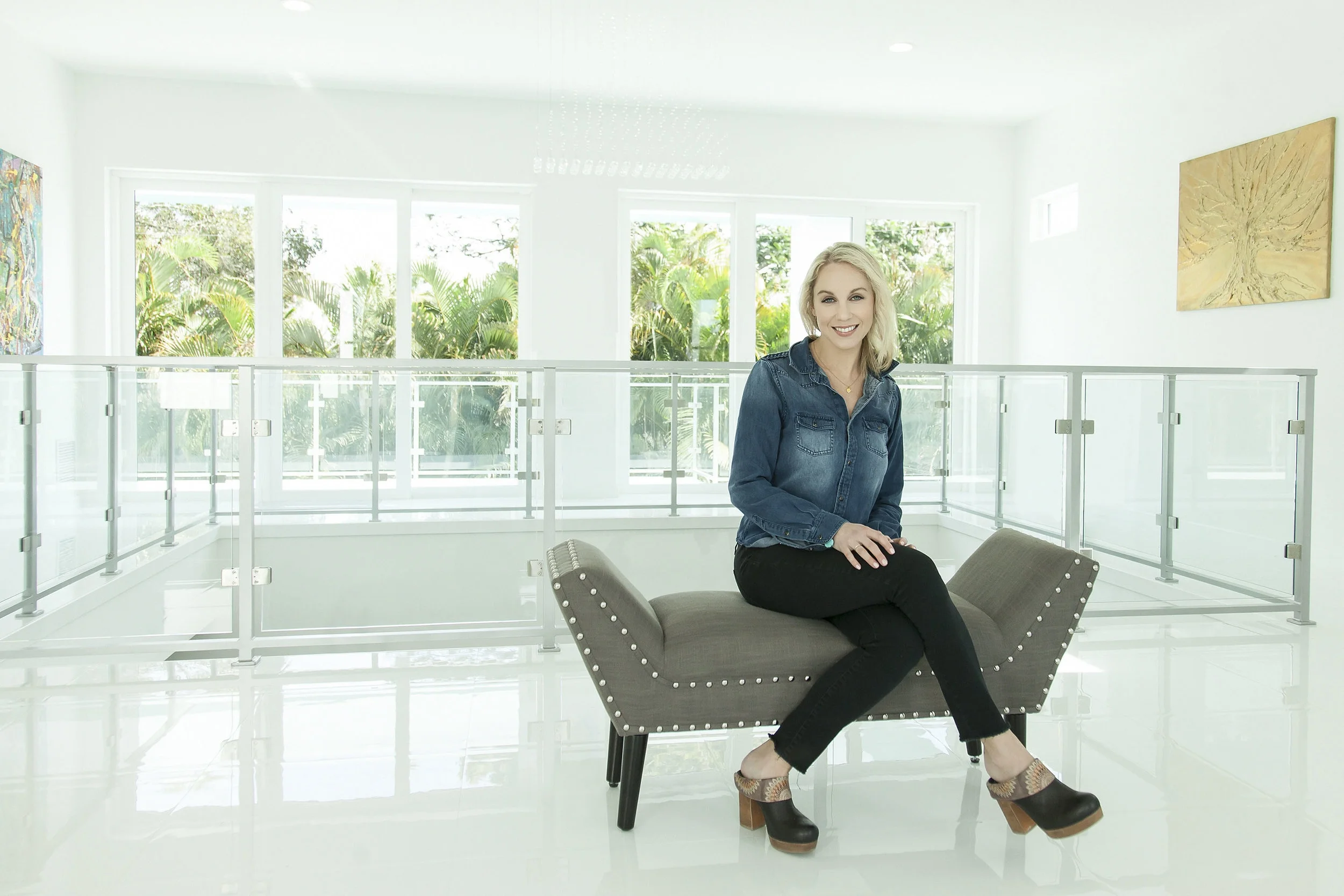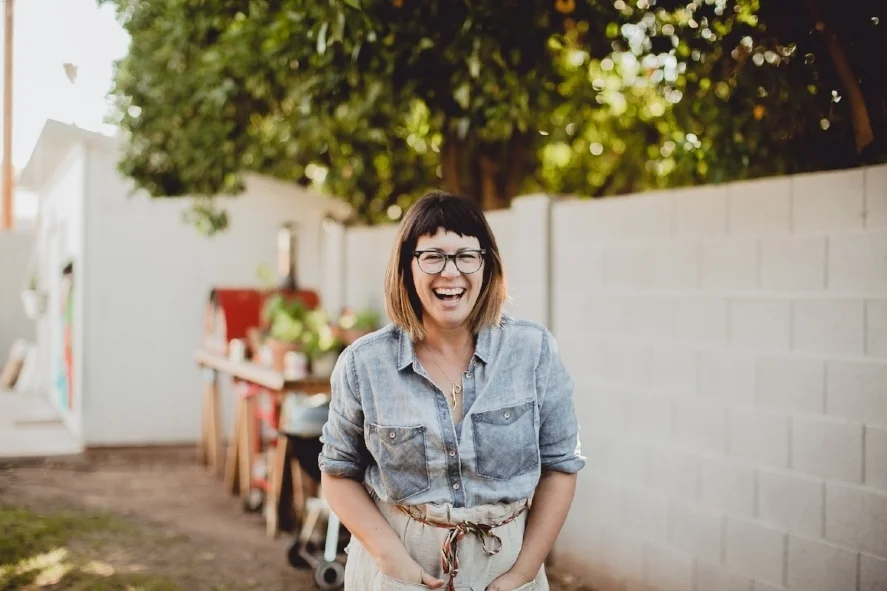Shan Boodram is one of the more captivating humans I’ve met in the last year. She’s stunning in appearance—but it’s more the way that she carries herself that draws you in. She is confident and unabashed. Her boldness piques a sense of curiosity from the other, a desire to learn more about who this woman is and what her story is all about.
Shan is the Internet’s most sought-after certified sex educator, dating expert, and lifestyle personality. I met Shan at the end of last summer for a panel I was moderating on sex and cannabis. When Shan spoke, she captured the attention of the entire room with her words, a skill very few people have and one that she owns with total audacity. She makes a living talking about sex and claims, “If I want the world to be more vulnerable, more open, more accepting, more loving towards this topic, I have to embody that. And not just when I talk about it arbitrarily, but when I talk about it personally too. It has to feel like it’s coming from my soul.”
At the beginning of our conversation, I ask Shan to define the term “sexologist,” to which she replies, “I think the easiest way to understand it is nutritionist. A sexologist is to sex as [a] nutritionist is to food. . . It’s the study of sex as it relates to biology, criminology, sociology. I kind of fashion myself as a Walmart greeter of sex ed, which just essentially means my goal is to invite people into this world.”
Known by her community as “Shan Boody,” Shan is currently the host of Facebook’s new show Make Up or Break Up—an original Facebook weekly life relationship series in which she interviews a couple on the brink of splitting in front of a studio audience. The audience then votes whether the couple should remain together or whether they should separate. According to Shan, the show is based on the “whole wisdom of a crowd thing—that if you have a large group of people who are objectively weighing in on something that they don’t have a personal attachment to, they tend to be right.” Additionally, the show presents the many common experiences that happen in relationship, which Shan says includes “a lot of what I’m supposed to be doing versus where I am actually at. There’s a lot of people who are in that space of ‘I’m at this age now, I’m supposed to be doing this or you are supposed to be doing that.’ Like, here is the roadmap and we are way off the map right now and that’s a problem. Even though the relationship itself might be healthy or they may be enjoying each other's time, there’s just all this notion that [they’re] not measuring up.”
I love that Shan’s show highlights how easy it is for us to fall into the trap of self-comparison, when aligning with your highest self so often means being on your own path and stepping outside of the blueprint that has been laid before you. And it’s important to note that for many people aligning with their truth does mean walking a traditional path. As Shan states, “It’s whatever works for you. And when you truly find happiness with what works for you, you become less concerned with how everybody else is approaching their version of that.”
Shan is in a publicly open relationship with her partner. She defines “open” as a “relationship style similar to monogamy polyamory. But the basis of open relationships is that it’s not a prerequisite for us to be together to be 100 percent monogamous. So we are open to having other experiences with other people and we are open to approach that as a partnership.” She continues, “We are open to having any dialogue all together and we will cross the bridges as we get there.”
While she may have progressive views on relationships now, Shan grew up in a conservative Catholic family in Toronto, Canada. When I ask her about her background, she notes,
“I think one of the things that I’ve definitely come to know this year is that so much of walking in your truth isn’t about moving forward. You know, often times we’re like ‘we’ve got to move into our purpose, we’ve got to find our purpose’, and I think a lot of it is really just going back.”
She goes on to share that much of her experience as a child was in relationship to her physicality. Her expressions with her body and her sensuality weren’t welcomed at that time in her family unit, but all of the signs about what made her feel alive or for lack of a better expression “turned her on” were there from a young age. The repression that she was taught as a child fueled her fire to better understand sexuality and sexual expression, which eventually led her to voracious reading and studying on the topic of sex. She found much of the material that she read to be monotonous and it became her personal mission to infuse sex education with excitement and storytelling. As she has now made a very successful career for herself as a sexologist, she reflects,
“It just makes me want to go back in time to my four-year-old self playing with naked Barbies and be like, ‘It’s okay . . . what you’re doing is not evil or deviant and there’s beauty and passion that you have. And there is purpose for it. So don’t feel like you have to shove this down in order to find a version of yourself that’s acceptable.’”
I ask Shan what she would share with a group of children who are just on the precipice of stepping into their own sexuality in order to not experience feelings of shame about being sexual. She responds:
“Watch National Geographic. Watch how [this is how] all living beings express themselves. Every living creature has two primary functions, which is survival and procreation. Survival is a massive part of how we live—it’s why we get jobs. It’s why we function well in society or learn how to cooperate together in society. . . . But procreation is another really big part of it. It’s a very big natural part. We’re driven to do it. . . . I think in general, you have to just reconcile with the fact that this is not a bad thing. This is a natural drive.”
Shan and I speak for a bit on the #metoo campaign. We are aligned in our feelings, which are slightly controversial due to the fact that we are both women. We are interested in having open dialogue with men and women alike to create healing. Shan states,
“Let’s start the healing. And that can’t happen if we are being divisive and judgmental and so we have to be—as women—I think an open source of nurturing and comfort in this time, which I am really proud of myself on being. But it’s kind of a controversial thing to even say that because you know, we shouldn’t be coddling, we shouldn’t be pandering, we should just be very firm. And I think there may be a great space for that. But this is not the space that I’m taking up on this issue.”
Toward the end of our conversation, Shan and I chat about how important it is to know yourself and your personal boundaries when you decide to color outside of the lines. And these lines can be in relationship to any of your personal and professional preferences. As Shan reflects on her path as an entrepreneur, she notes,
“If you have a lot of control, in that you are emotionally stable, you are able to have a lot of check-ins with yourself, and you can be really clear about your goals and motivate yourself, [then] it’s possible. But if you want to step outside of the yellow brick road that’s been paved for all of us, you just need to know that it’s not going to be as easy as a freefall [or as easy] as maybe just sticking with what society has told you to do.”
In our final moments, I ask Shan what she would offer to someone who is struggling to be in full expression with their own sexuality or sexual identity and what words of wisdom she could pass on to someone to help them fully claim the sensual and sexual parts of themselves. Shan shares,
“I’m never sure this is the answer people want or not because it’s the long one. Get books. Research. . . . I think you have to do the shotgun approach where you dive into literature. . . Keep narrowing it down until you find what really does feel like a positive sexual expression for you.”






